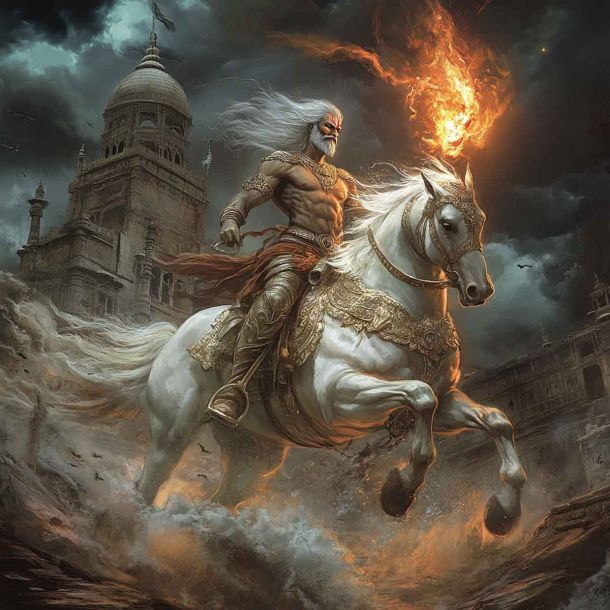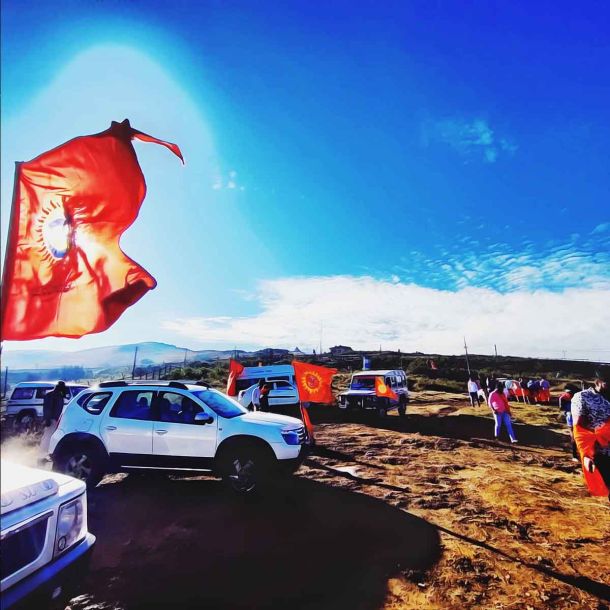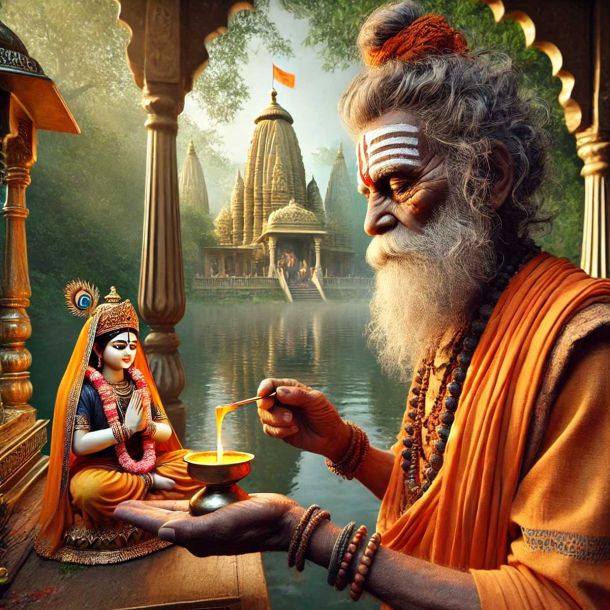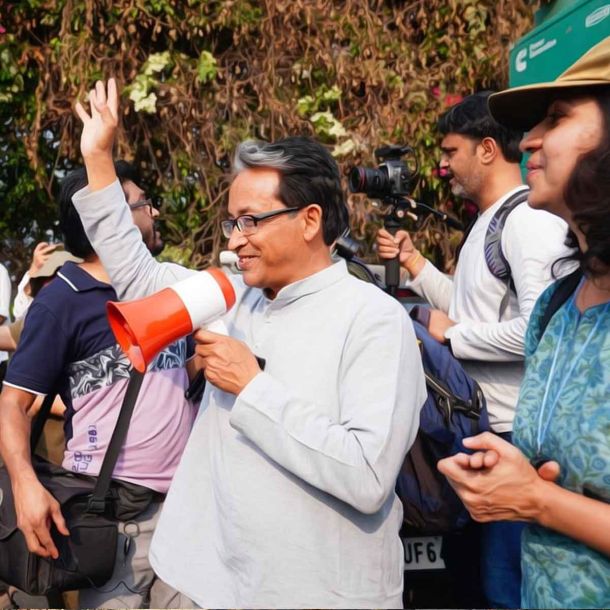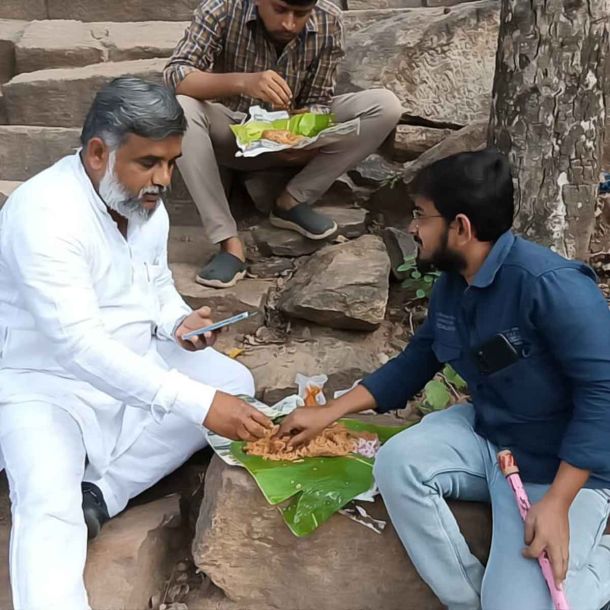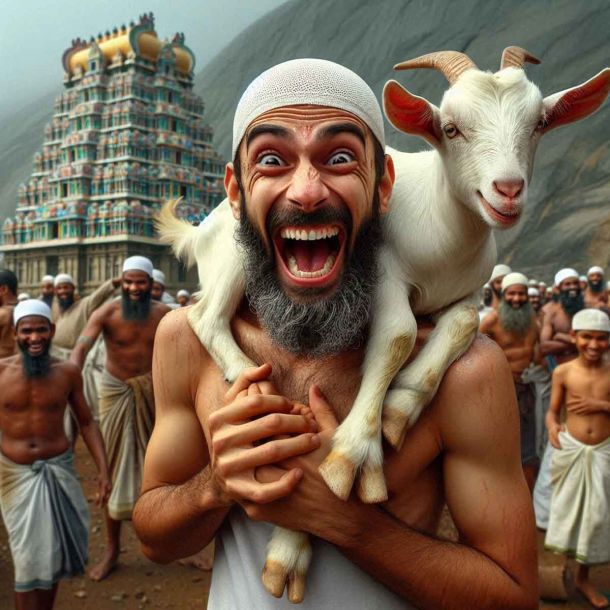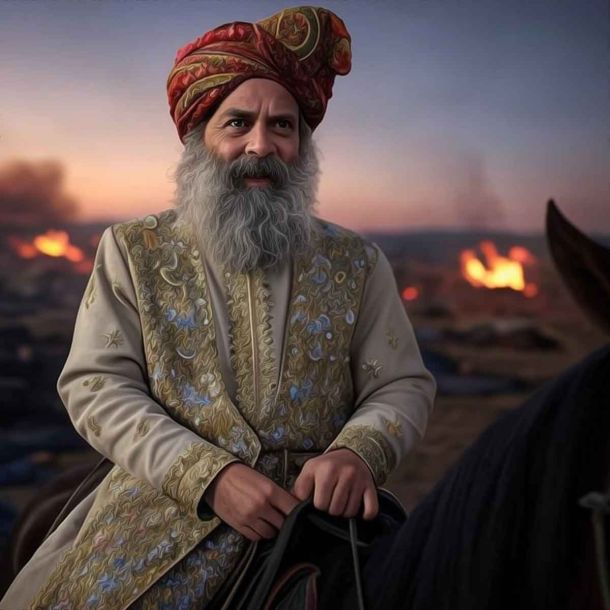More Coverage
Twitter Coverage
Satyaagrah
Written on
Satyaagrah
Written on
Satyaagrah
Written on
Satyaagrah
Written on
Satyaagrah
Written on
Join Satyaagrah Social Media
Hindus need temples today more than ever and here is why
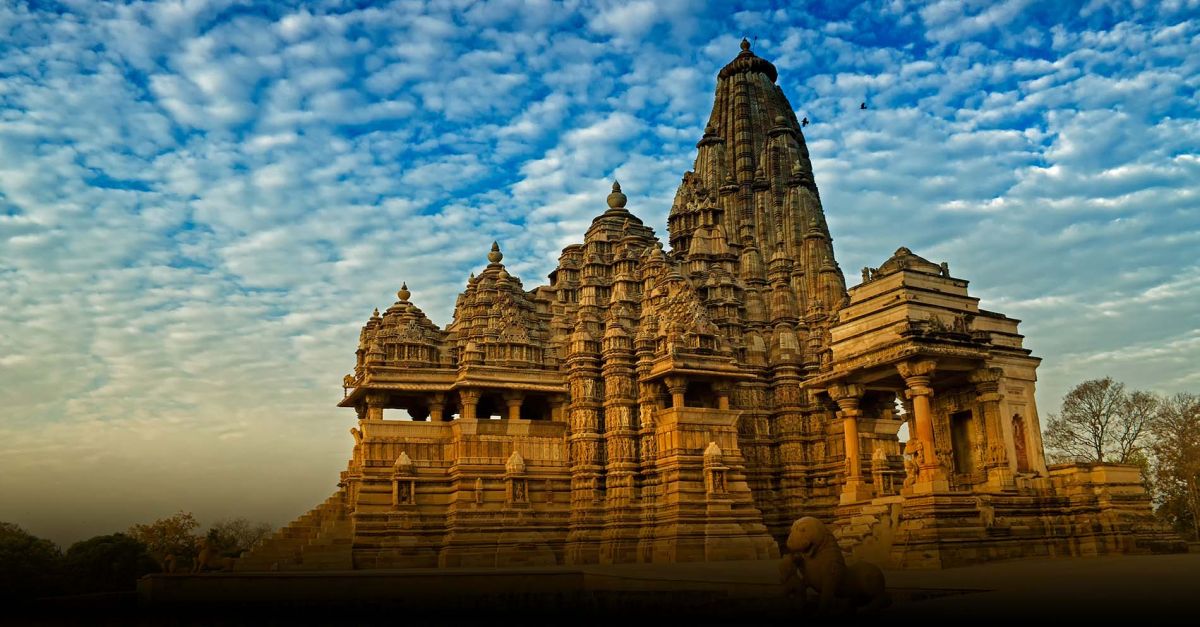
One thing that the Bengal political violence has exposed is the inability of the Bharatiya state to protect its own citizens, even in times of political stability. In times of political instability, insurgency or even religious conflict, the Bharatiya state’s inability to protect its citizens is well-documented. This certainly does not mean that the Republic of Bharat cannot protect itself and its integrity from external threats. The armed forces are well trained but won’t act against Bharatiya citizens and even if deployed, do not come into picture until most of the damage is done.
Bharatiya state is inherently secular and there is no reason to suspect that this character is going to change anytime soon. Despite all the noise to the contrary, the dominant political party has a galaxy of secular leaders as its heroes. So it is a mistake to say that the state will side with any political or religious group in social conflict with another group. Indeed, the handling of Shaheen Bagh and “farmer” protests shows that minorities enjoy certain privileges even during law and order situations. Any group of Hindus holding such violent and protracted protsts would have been forcibly dispersed, as has been done multiple times in past.
Despite all the noise of state-sponsored genocide, the Hindu-Muslim riots see proportionally more Hindus dying in comparison to Muslims. Despite all the talk of Hindu majoritarianism, a small minority of a few thousand farmers, in large part from Sikh community, have held the capital ransom to their demands for last 5 months. It is not as if there are no anti-Hindu laws in the country. The constitution itself discriminates against Hindus and deprives them from the rights to either manage their own places of worship or provide religious education to Hindu children in Hindu owned educational institutions. Many laws too provide special consideration to various minorities, and are biased against Hindus.
However, despite this legal discrimination and the rampant illegal and extra-legal administrative discrimination against the Hindu citizens of Bharat, there has not been any mass movement of Hindus in last three decades. As we see, this is not due to lack of reasons, but due to lack of capacity. So how come Muslims, Sikhs and Christians have such capacity to mobilize lakhs of people and Hindus don’t? The answer to this is in the social organization of Hindus. Majority Hindus do not have “Hindu” as their primary identity, while a large majority of Muslims, Christians and Sikhs have religion as their primary identity. This is not a natural process, but has come about after years of conditioning from the religious places, political parties and religious-social organizations.
A few decades ago, Hindus used to have the localized capacity to mobilize around some symbol, or some identity. It could be their caste, their sect or some God (seen in case of Ram Temple movement). But over time most caste associations became toothless tigers and local temples started seeing fewer visits. The community feeling among Hindus, specially in large cities is now practically non-existent. With the increase in urbanization over next few decades, Hindus could be in a much worse situation than today.
So how do Hindus find security in such a situation? History has some lessons for us. Hindus are the only civilization to have survived both the Islamic and the Christian colonial onslaught. This we could do only by placing our trust in the community and in God. The Great Langula Narsimha Deva I of Odisha in 13th Century and Maharana Pratap of Mewar in 16th century, defeated the Muslim armies comprehensively in war when Muslim power was expanding. Interestingly, in both the Kingdoms, God was declared the King and the ruler declared his representative. In other Hindu Empires that were established at the expense of Muslim powers, like that of the Marathas and Vijayanagar, Dharma played a preeminent role.
It is Dharma alone, that can save Hindus even today. In a republican setup, we have to rally to temples. Temples used to be the centers of Hindu society, when it was at its zenith. These were not only the meeting point of community, but also provided services like education, banking, charity and even leisure. The destruction of temples in northern Bharat and their capture by the secular state in southern parts of the country, has resulted in a situation where Hindus are deprived of a vital part of our community. Make no mistake, this is one of the reasons that motivates the secularists to deride any large temple project.
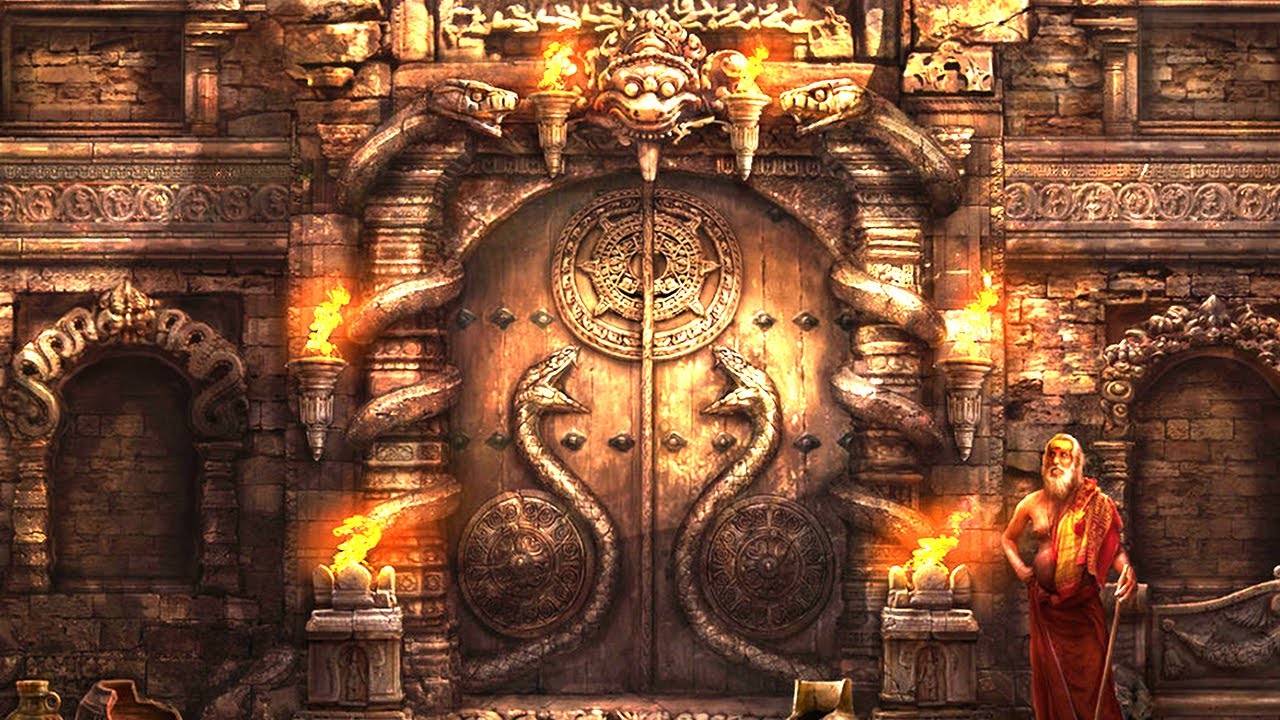 |
Our temples need to be rescued from the clutches of the instruments of the government, be it the departments of state governments or the Archaeological Survey of India. They need to be made the living, breathing spaces that they are meant to be. In fact, we need to build many more now to cater to our huge population. Hindus need to start visiting their local temples with more regularity and build a community. These should be used not only for religious discourses and rituals , but also to discuss the state of Hindu society and the issues facing it, not only in Bharat but all over the world.
The Communists downplayed and in fact demonized the role of religion in building a community. Unfortunately, only Hindus fell for it. It is time to unabashedly assert our Hindu identity and find security within ourselves. Hindus have defeated imperialism after rising from far worse conditions, with courage in our heart and trust in our Gods.
There has been significant momentum on the issue of freeing Hindu temples from state control. There have been instances of temple land sales being opposed, fund transfers from temples objected to and court challenges to new laws that allow more temples to be taken over by state government run bodies.
All of these are good developments in the sense that it sends out a strong signal that temple administration cannot be taken for granted anymore, and that there are alert activists looking for evidence to punish wanton wastage of temple resources.
However, there is yet to be a meaningful dialogue on what happens once the temples are free. It may be argued that what will happen to temples can be debated once the temples are free and that the current challenge is to first stop state control.
At stake here is not just the rights of traditional custodians of temples but also the future of millions of Hindus. If temple resources were indeed made available, millions of scholarships and new institutions can be opened up to Hindu students of all castes thereby deterring conversions through Christian educational institutions.
Through preferential treatment to Hindus, temples can provide social security nets (jobs) to millions of Hindus thereby making them stakeholders in a more prosperous temple ecosystem.
It is high time the process of freeing temples from government control began, as already thousands of temples in Tamil Nadu are being ruined, said Isha Foundation head Sadhguru. He also pointed out that as per the Constitution of the country, the government has no right to involve itself in religious activities.
Though all religions manage their own spaces of worship, the special Hindu Religious and Charitable Endowments Act gives the State control over Hindu temples. Addressing a press conference here, the Sadhguru said, “The State government has admitted before the Madras High Court around 1,200 idol images (Murthis) of various temples have been stolen.
The Isha Foundation head said temples are not mere buildings but have been ‘souls of a tradition’ for thousands of years. Asked about allegations against him that he has encroached forest department lands for his ashram, Sadhuguru said, “I have invited everyone to Isha to inspect whether the allegations are true. But no one has turned up. The forest department has also denied this. If you prove that I have encroached even an inch of forest land or tribal land or land belonging to any individual, I leave this country,” he asserted.
I firmly believe that in a democratic country, before the election, every responsible citizen must clearly articulate what are the few things that must happen in their country or state. Political parties must know that this is what the people want and they must make their manifestos based on that. But if the people do not say anything now and then protest, cry, and make comments after the election is over – this is irresponsible citizenry. This is why I am pitching the issue now.
In terms of action, my focus is on Tamil Nadu right now because the Tamil Nadu HR & CE laws are the most draconian. Of all the states, the Tamil Nadu government holds the highest number of temples under its control; if we can set an example here, the movement will naturally take off everywhere else.
Recently the major political parties in Tamil Nadu announced sums of money for temple restoration and travel allowance for making pilgrimages. Unfortunately, what is missed here is that the concept of giving remuneration was meant for minorities because the origin of their religion is far away; their places of pilgrimage are in foreign countries and they cannot afford the travel expenditure. For Hindus, our temple is our pilgrimage. You can drive, take a train or walk. Even today, thousands of people make pilgrimages from the Himalayas to Rameswaram and back by foot. They do it quietly, and the government need not participate in that. It is our business. We do not need money for that.
|
 Support Us
Support Us
Satyagraha was born from the heart of our land, with an undying aim to unveil the true essence of Bharat. It seeks to illuminate the hidden tales of our valiant freedom fighters and the rich chronicles that haven't yet sung their complete melody in the mainstream.
While platforms like NDTV and 'The Wire' effortlessly garner funds under the banner of safeguarding democracy, we at Satyagraha walk a different path. Our strength and resonance come from you. In this journey to weave a stronger Bharat, every little contribution amplifies our voice. Let's come together, contribute as you can, and champion the true spirit of our nation.
 |  |  |
| ICICI Bank of Satyaagrah | Razorpay Bank of Satyaagrah | PayPal Bank of Satyaagrah - For International Payments |
If all above doesn't work, then try the LINK below:
Please share the article on other platforms
DISCLAIMER: The author is solely responsible for the views expressed in this article. The author carries the responsibility for citing and/or licensing of images utilized within the text. The website also frequently uses non-commercial images for representational purposes only in line with the article. We are not responsible for the authenticity of such images. If some images have a copyright issue, we request the person/entity to contact us at satyaagrahindia@gmail.com and we will take the necessary actions to resolve the issue.
Related Articles
- The forgotten temple village of Bharat: Maluti
- A new symbol of Hindutva pride, Shri Kashi Vishwanath Temple Corridor
- An Artisan Heritage Crafts Village: Indigenous Sustainability of Raghurajpur
- Srikalahasti Temple, Dakshina Kailash
- Culture And Heritage - Meenakshi Temple Madurai
- BHU starts India's first Hindu Studies course with topics on ancient warfare, military strategy, women in military
- A Different 9/11: How Vivekananda Won Americans’ Hearts and Minds
- Biggest Wonder of the World : Kitchen of Lord Shri Jagannath
- Lakshmi Narasimha Swamy Temple, Antarvedi, Andhra Pradesh
- Jagannath Temple administration issues clarification on proposed sale of temple lands
- Shri Murudeshwar Temple: Home To The World’s Second Tallest Shiva Statue
- Hindus documented massacres for 1000s of years: Incomplete but indicative History of Attacks on India from 636 AD
- The Calculated Destruction of Indian Gurukuls (Education System) by British Raj which resulted in the tormented Indian Spirit
- Bhagwad Gita course for corporates is all set to launch at IIM Ahmedabad, will teach management and leadership
- रामचरितमानस एवं उसके अंग्रेजी अनुवाद तथा हिंदी के अकेडमिक्स का दोहरा रवैया

